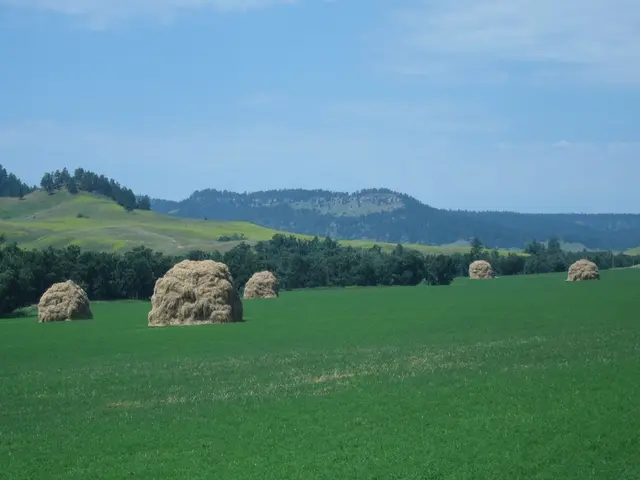Thousands of individuals have been forced to flee due to excessive heat, drought, and fires in Spain, while the water crisis on Mallorca shows no signs of abating.
===========================================================================
Europe has been grappling with a surge of wildfires in 2021, a phenomenon driven by prolonged heatwaves and droughts that have created extremely dry conditions conducive to fires. This trend is part of a broader Mediterranean climate crisis, with Spain, including the region near Carucedo, being heavily impacted.
The wildfires have resulted in severe local damage, including the loss of vegetation, deterioration of air quality, and significant contributions to carbon dioxide emissions. They have also posed health hazards, burning hundreds of thousands of hectares across Europe. Spain and Portugal have been among the hardest-hit countries, with the Mediterranean region experiencing its peak wildfire activity under these dry, hot conditions.
In Spain, the village of Carucedo has faced direct impacts. The wildfires have led to the loss of forested and agricultural lands, increased smoke and air pollution affecting community health, disrupted local ecosystems, and potentially caused economic damage, particularly in agriculture, forestry, and tourism sectors.
The wildfire surge in Europe has triggered complex cascading effects. Elevated CO₂ emissions have added to climate change feedback loops, increasing the risk of flooding after fires due to soil degradation and vegetation loss. This has strained emergency services and public health systems, leading to economic losses and displacement of local communities in affected areas.
The 2021 wildfire season is part of an ongoing trend of worsening fire seasons in Europe, fueled by human-driven climate change, which has resulted in hotter summers and longer droughts conducive to wildfires. Scientists and officials stress the urgent need for long-term resilience strategies beyond short-term firefighting to address these escalating risks.
As Europe continues to battle water shortages this year, many regions, including northern Spain, are at risk of wildfires. The current year is marked by extreme temperatures in many parts of Europe, with new temperature records being set. It is crucial for individuals, communities, and governments to take proactive measures to mitigate the risks posed by wildfires and adapt to the changing climate.
Applying environmental science principles, we must develop long-term resilience strategies to combat the escalating risks of climate-change-induced wildfires, such as those witnessed in Carucedo, Spain, during the 2021 season. The science of climate change suggests that these wildfires are a direct result of our weather patterns becoming increasingly dry and hot, contributing to the deterioration of the environment and aggravating the global issue of climate change.








